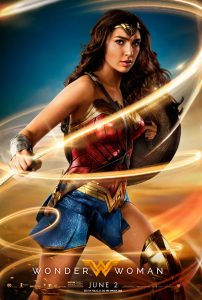 I finally saw Wonder Woman on Father’s Day. Which I suppose is a little weird[1]? But we hadn’t seen it yet, and my dad was down (even though he had seen it, which is its own kind of cool), so, like that. I cannot decide if it fulfills its hype. I mean, obviously it’s very good. It’s better, probably, than its current series of DC movies deserves for it to be. That’s not what I’m saying at all.
I finally saw Wonder Woman on Father’s Day. Which I suppose is a little weird[1]? But we hadn’t seen it yet, and my dad was down (even though he had seen it, which is its own kind of cool), so, like that. I cannot decide if it fulfills its hype. I mean, obviously it’s very good. It’s better, probably, than its current series of DC movies deserves for it to be. That’s not what I’m saying at all.
But like, is it uniquely good? It’s on track to have the biggest box office of the summer[2]. And it’s the first superhero movie with a female lead. Those are both big deals, although obviously the latter is the bigger. Anyway, there are these immortal Amazon women, sworn to defend mankind from the depredations of the god of war. And once they learn of a new war outside their realm, Diana goes forth to fulfill that destiny. Or, I think more accurately, she goes forth to decide whether mankind deserves her intended defense. Also, there’s a lot of cool comic book action in which a person who will one day probably be called Wonder Woman kicks some serious ass.
Is that a thing we’ve never seen before? A hero, on her journey to greatness? In a way, obviously we have. Some heroes journey from a state of selfishness, others from a state of innocence, and still others are just born that way, but they all start somewhere and face a first challenge, whether of the physical, spiritual, or moral variety. Or, let’s be honest, usually more than one of these. In another way, that’s probably me being a bit broad of scope, or just finding a way to not give any more spoilers than I already have done. But my real point is one I already made.
It literally is a thing we’ve never seen before. Although there have been female superheroes, none of them have scored a cinematic lead before, and that’s a big deal. It doesn’t make the movie uniquely good, but it makes the movie unique; the good news is, it was in fact also really good! Because what we need is a theatrical landscape in which it doesn’t strike me as weird, even for the few seconds it took me to decide to go with that instinct instead of immediately quelling it as was my initial reaction to myself, that both my father and I would want to celebrate his day by seeing a movie about a lady superhero. I mean, that’s dumb, right? It’s a comic book action movie, what about this is even the slightest bit strange?
(I still think I’d rather not have had the thought and had to figure out a different way to come at this, all things considered.)
[1] Bear with me, I’ll get back to it.
[2] Final outcome subject to change, but that’s the trend I’m seeing right now.
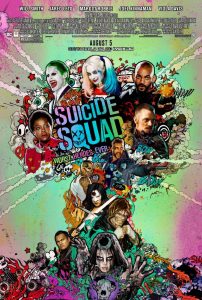
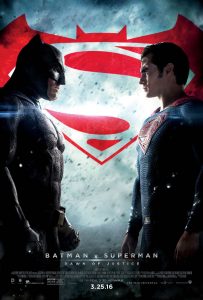 If they had not made a Wonder Woman movie, I probably could have happily lived out my days not watching
If they had not made a Wonder Woman movie, I probably could have happily lived out my days not watching 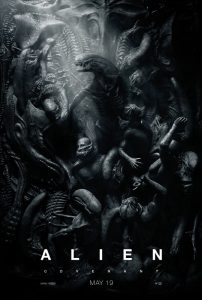 Got around to seeing me an Alien movie, and my short answer is this: it fell short of what it should have done in exactly the same way that
Got around to seeing me an Alien movie, and my short answer is this: it fell short of what it should have done in exactly the same way that 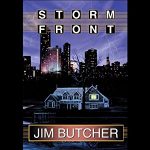 I probably just shouldn’t bother to review audiobooks, because of how I take so long to finish them. Anyway, Mary and I decided that a good book series to do a reread of while in the car together without a podcast backlog would be the Dresden Files.
I probably just shouldn’t bother to review audiobooks, because of how I take so long to finish them. Anyway, Mary and I decided that a good book series to do a reread of while in the car together without a podcast backlog would be the Dresden Files.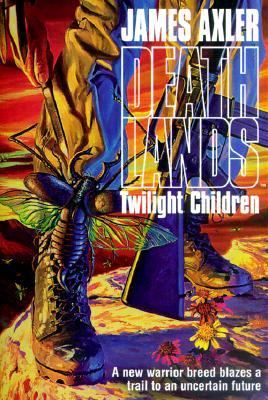 On Sunday, I read
On Sunday, I read 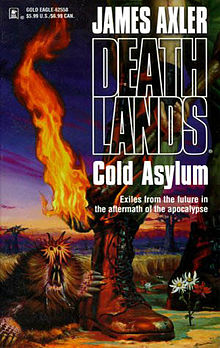 On Saturday I read
On Saturday I read 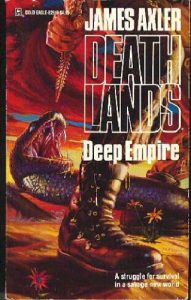 If you are paying a lot more attention than I would expect anyone to be paying, you would expect this review to cover the second Robin Hobb book. However, I ran into a pair of related problems. Maybe a trio of interrelated problems? You decide! See, thing one is that I’m still trying to read the series in conjunction with my wife. Thing two is that I went camping last weekend. The problem with that is that while I read a lot in the woods, she really does not. Thing three, which may or may not count as an actual thing, is that I didn’t want to deal with reading comics on my convertible laptop in the woods, because it’s quite a bit harder to handle / keep safe than a tablet in a case would have been. The relevance of this is that comics would have slowed me down quite a bit and made it at least mildly feasible that I could read the Farseer book without pulling irretrievably far ahead.
If you are paying a lot more attention than I would expect anyone to be paying, you would expect this review to cover the second Robin Hobb book. However, I ran into a pair of related problems. Maybe a trio of interrelated problems? You decide! See, thing one is that I’m still trying to read the series in conjunction with my wife. Thing two is that I went camping last weekend. The problem with that is that while I read a lot in the woods, she really does not. Thing three, which may or may not count as an actual thing, is that I didn’t want to deal with reading comics on my convertible laptop in the woods, because it’s quite a bit harder to handle / keep safe than a tablet in a case would have been. The relevance of this is that comics would have slowed me down quite a bit and made it at least mildly feasible that I could read the Farseer book without pulling irretrievably far ahead.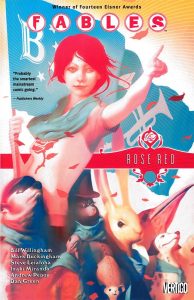 The big plot of
The big plot of 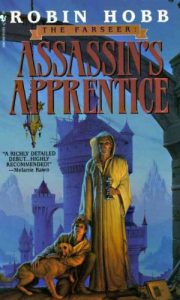 In a conclusion that will be of no surprise to anyone much, I should have read a Robin Hobb book long before now. Still, though, I’ve read
In a conclusion that will be of no surprise to anyone much, I should have read a Robin Hobb book long before now. Still, though, I’ve read